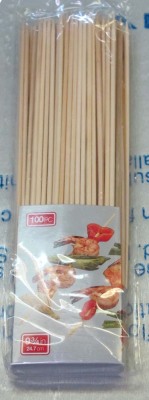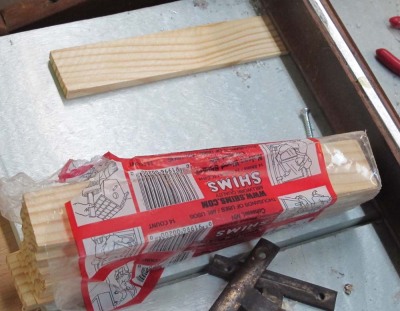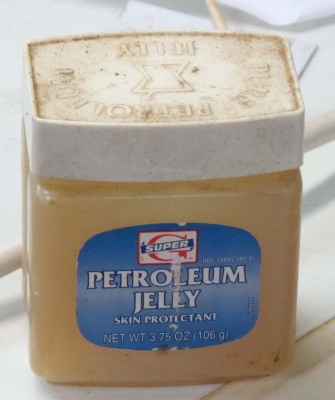Useful (Cheap!) Things Around The Shop
In the past I have waxed eloquent on the utility of elegantly simple humble items in the shop, like clothespins and bricks. Well, I have just finished a project where three painfully prosaic supplies were of immense help, things I keep around the shop and use daily without even thinking about it. So now I am thinking about it.
The first item is kabob skewers from the grocery store. I use them as mixing stirrers, especially when I am preparing some small batches of viscous epoxy for adhering or filling something, as reaming cleaners when I want to clean out a small hole, especially a threaded hole, when I do not want to inflict any damage to the threads, and even is pins for temporarily aligning parts or even as mortise pins for small frames. I go through a bundle of skewers about twice a year.
Next is a bundle of tapered shims, the kind used by trim carpenters especially for framing out or installing doos and windows. I work on a lot of antique furniture, and one thing that is fairly self evident about antiques is that they are, well, old. And lime you and me, as furniture ages it often gets warped. Almost nothing irritates me more in the shop than artifacts wobbling on the bench while I am working on them. Whether it is a chair on top of the bench or a cabinet on the floor, odds are pretty good that will not sit precisely and perfectly solid on the surface. A quick application of a tapered shim under the offending corner or leg addresses the problem, and gives me one less thing to get cranky about. Given the precarious state of Western Civilization in he hands of our perfidious “leadership” I already have enough to be cranky about. Pairs of shims do wonders as expanding clamping blocks, too.
Finally, we have the often-overlooked container of petroleum jelly. Among other things it is a superb screw lubricant or easily removable masking agent. I use it more as a masking and parting agent when I am making silicone rubber molds, which I do fairly frequently. It can be thinned with mineral spirits or naphtha as needed, and easily removed with the same fairly benign solvents. I never know where to keep mine, so I have small containers of it scattered around the shop.






Join the Conversation!